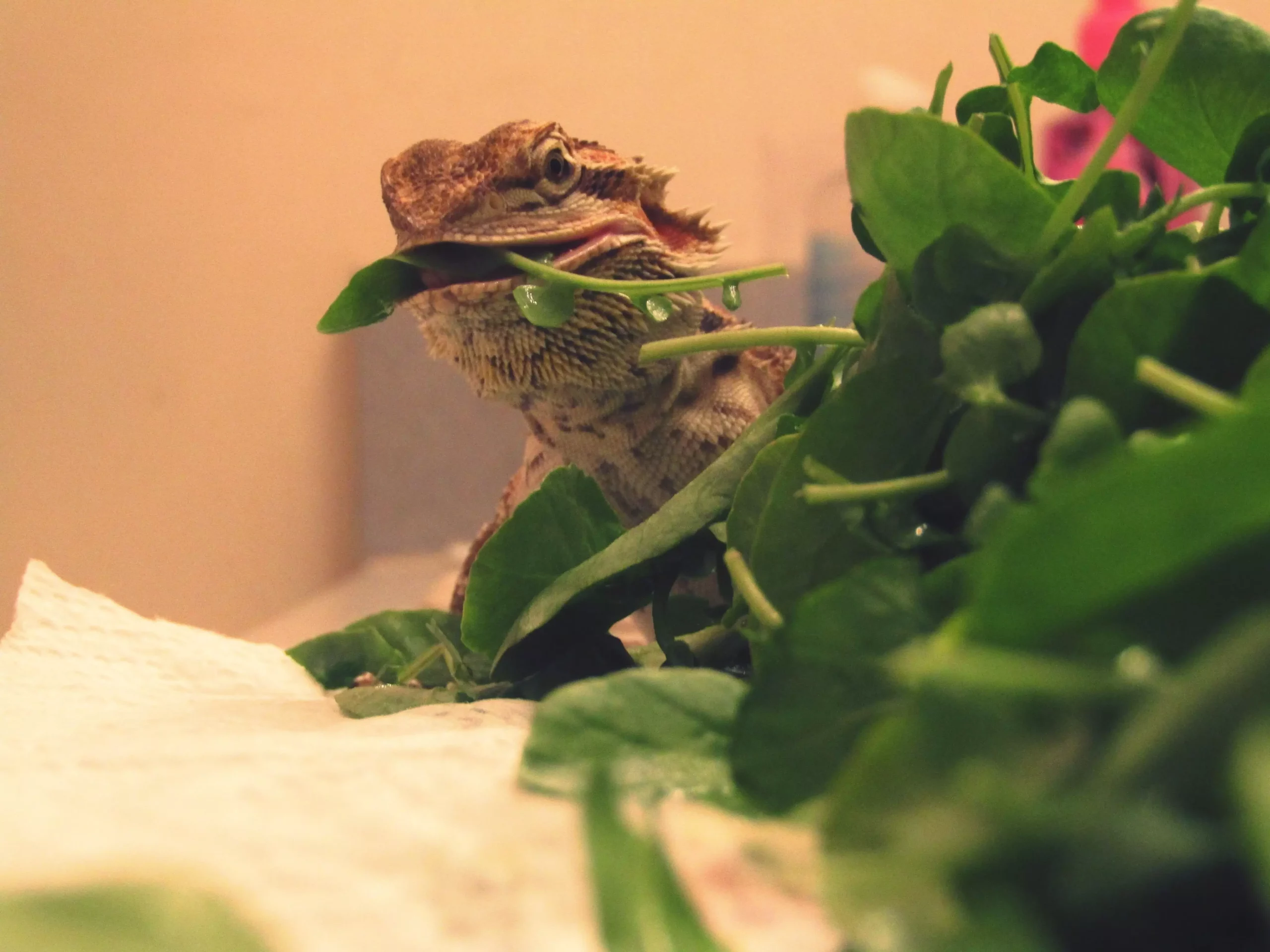Bearded dragons, known for their friendly demeanor and relatively simple care requirements, have specific dietary needs that are crucial for their health and longevity. Ensuring a well-rounded diet for adult bearded dragons is not only vital for their physical well-being but also contributes to their overall quality of life. This article explores the essential components of a healthy diet for your bearded dragon, focusing on greens, insects, fruits, and the balance of nutrients required to thrive.
One of the cornerstones of an adult bearded dragon’s diet is dark, leafy greens. These greens are more than just food; they serve as a principal source of vital vitamins and minerals. Regular consumption of a diverse selection of greens can help prevent health issues such as metabolic bone disease, a common condition caused by insufficient calcium intake. It is advisable to offer a variety of greens, as different types provide varying levels of essential nutrients.
When choosing greens, it’s important to prioritize those with a high calcium-to-phosphorous ratio. Greens like endive, chicory, and dandelion greens are excellent choices, as they generally offer 2:1 ratios and higher calcium content. Rotating your selections not only keeps meals interesting for your bearded dragon but also ensures a more nutritionally balanced diet.
While some greens can be beneficial, it is crucial to understand the role of oxalates in a bearded dragon’s diet. Oxalates naturally occur in many plants and, in high amounts, can interfere with calcium absorption. Therefore, it is recommended to monitor and limit the intake of greens that contain significant levels of oxalates such as spinach, swiss chard, and beet greens. These should be offered only occasionally, and in very small quantities, as their high oxalate content can pose health risks over time.
However, it is not necessary to completely eliminate these greens; rather, it is essential to maintain a balance. Greens like kale and mustard greens contain oxalates but can be included in moderation due to their beneficial nutrient profiles. Adopting a mixed salad approach with a variety of greens allows owners to maximize nutrient intake while managing oxalate levels.
In addition to greens, a robust diet for adult bearded dragons should include a range of insects, with crickets being a popular choice. It is vital to ensure that these insects are gut-loaded, meaning that they have been fed nutritious foods before being offered to your pet. This practice enhances the nutritional value of the insects, providing your dragon with much-needed proteins, vitamins, and minerals.
While crickets are often the go-to insect, it is beneficial to introduce a variety of other insects such as mealworms and roaches to maintain your dragon’s interest in feeding. By diversifying their diet, you also ensure that they are receiving a broad spectrum of nutrients.
Fruits and vegetables also play a significant role in the diet of a bearded dragon, but they should complement the primary sources of nutrition rather than replace them. Moderation is key when it comes to fruits, as they tend to be high in sugar. Options like bell peppers and certain squash varieties provide essential vitamins without the downsides of excessive sugar content. Red fruits such as raspberries or strawberries can also be sprinkled on salads—not only do they provide flavor, but their bright color may entice reluctant eaters to enjoy their greens.
Beyond whole foods, dietary supplementation is a valuable aspect of bearded dragon care. Calcium powder is particularly important and should be dusted over their greens several times a week. This practice helps ensure that your bearded dragon receives adequate calcium necessary for bone health, compensating for any deficits that may arise from dietary sources alone.
It’s common for bearded dragons to develop preferences for certain foods, leading them to become finicky eaters. To combat this, regularly offering a variety of finely chopped greens mixed into a salad is advised. If your dragon refuses to eat, try incorporating insects or visually appealing fruits as temptations. Engaging your bearded dragon in mealtime can build healthy eating habits and combat the tendency to refuse a broader diet.
A balanced diet for adult bearded dragons hinges upon a variety of dark, leafy greens, protein from insects, and limited fruit, with a focus on nutrient density and moderation. By being mindful of oxalate levels and incorporating dietary supplements, you can help your bearded dragon lead a long and healthy life.

